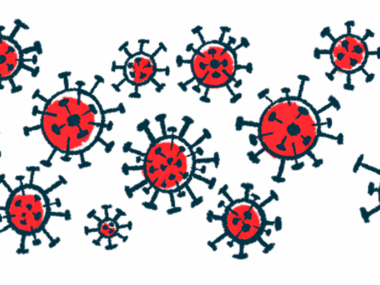NK cells may hold key to link between viral infections, MS
Multiple risk factors, antibodies against EBV and myelin lead to high MS risk
Written by |

Natural killer (NK) cells, a type of immune cell, are critical for preventing an immune response against an infecting virus from triggering multiple sclerosis (MS), a new study shows.
“Our study demonstrates that the main protective factors against MS are distinct cytotoxic [cell-killing] NK cell responses,” the researchers wrote in “Ineffective control of Epstein-Barr-virus-induced autoimmunity increases the risk for multiple sclerosis,” which was published in Cell. The findings were also discussed this year at the joint ECTRIMS/ACTRIMS meeting.
“These immune responses could therefore play a decisive role in the development of future vaccines” aiming to treat or prevent MS,” Hannes Vietzen, PhD, the study’s first author at the Medical University of Vienna, Austria, said in a university press release.
In MS, the immune system launches an attack that targets healthy parts of the brain and spinal cord, damaging the myelin sheath, a fatty covering around nerve fibers that helps them send electrical signals. This neurological damage ultimately gives rise to MS symptoms.
Previous research has shown the Epstein-Barr virus (EBV), which causes infectious mononucleosis (mono) and nonspecific childhood illnesses, is a major risk factor of MS. Studies have suggested EBV can set the stage for MS because certain EBV proteins have a similar shape to parts of the myelin sheath. When immune cells make antibodies to fight off the virus, they can accidentally begin attacking healthy myelin, which could lead to the neuroautoimmune disease.
Nearly everyone is infected with EBV at some point, but only some people develop MS. Plus, antibodies that target both EBV and healthy myelin can be detected in healthy people. So other factors must control whether an immune attack against EBV will spiral out of control to cause MS.
The role NK cells play in MS
Through analyses of blood samples collected over the years from people who did or didn’t later develop MS, Vietzen and colleagues found that NK cells, which are able to kill other cells in the body — such as those that become infected or cancerous — are one of the major factors in play.
After an EBV infection, some immune cells go after the virus with molecular weapons that can also wrongly target healthy myelin. But certain NK cells — specifically those that produce the NKG2C and NKG2D proteins — can eliminate these self-targeting immune cells, which helps prevent MS from developing.
“Although the overall role of NK cells in MS is still unclear, our data are supported by animal studies demonstrating that NK cells have an immunoregulatory role and can prevent MS-like disease,” wrote the scientists, who found NK cells tended to be less efficient at eliminating potentially MS-causing immune cells in people who carry certain genetic variations that influence immune activity.
Certain EBV strains, as well as prior infection with other viruses, also appeared to influence the efficiency of these immunoregulatory NK cells.
In statistical models that put these factors together, the researchers estimated that people with multiple risk factors and high levels of antibodies against EBV and myelin were 12 to 260 times more likely to develop MS relative to those without any of such risk factors. The highest risk was for those who were genetically predisposed toward reduced regulatory NK cell activity and were infected with a high-risk EBV strain.
The data suggest it may be possible to identify people at the highest risk of MS years before they show any overt signs of developing the disease, which could lead to new strategies that may prevent or treat MS. For example, “it may be helpful to analyze the EBV variants detected in these patients in order to identify patients at risk at an early stage,” Vietzen said.



